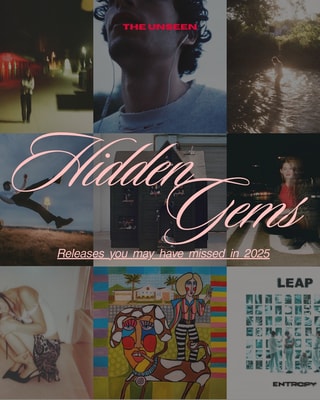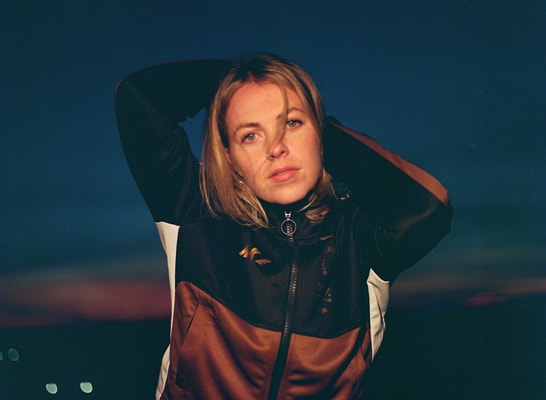Between Island Roots and Stage Lights: Aura Dione in Interview
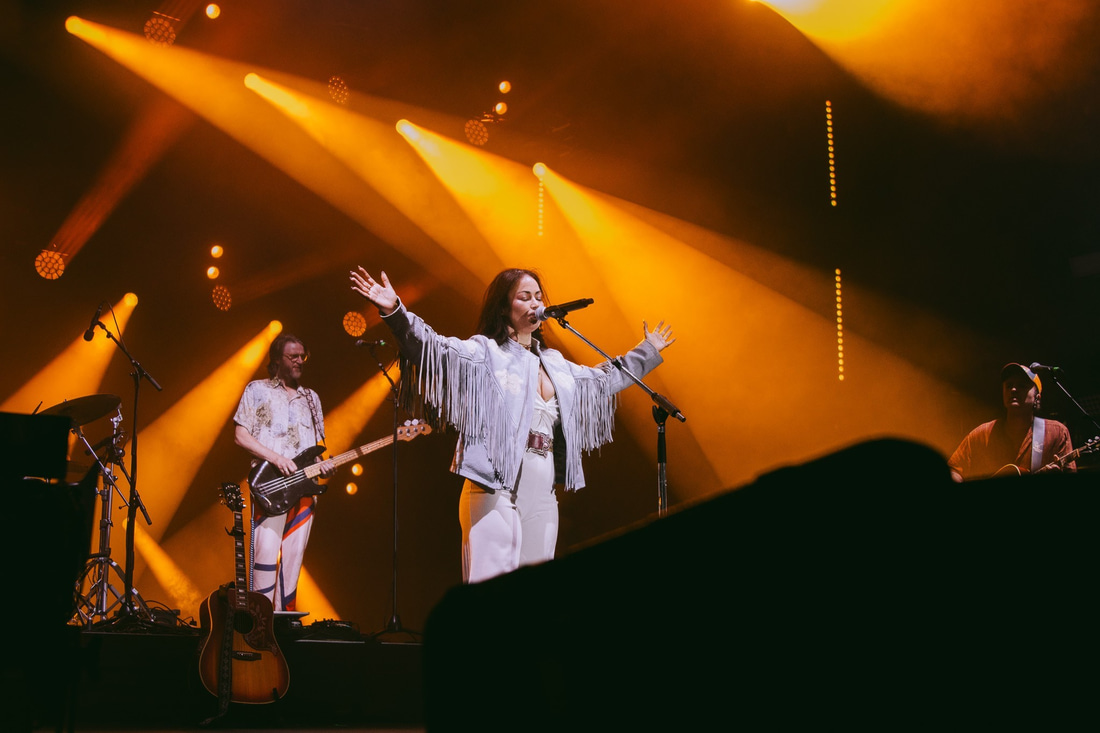
With hits like “Geronimo,” “Friends,” and her international breakthrough single “I Will Love You Monday (365),” Danish singer-songwriter Aura Dione has been a staple in the pop landscape for over a decade. Known for blending vulnerability with vibrant energy, she has consistently reinvented herself while staying true to her artistic roots. We were lucky enough to catch up with her just moments before her performance at Kieler Woche 2025, where she spoke with us about growing up with music, motherhood, songwriting, and finding hope in uncertain times.
Michelle: First of all, thank you so much for having us today! I'm sure most of our readers are going to know who you are, but maybe for those who are just now discovering you - could you introduce yourself in a couple of words?
Aura: Yes. My name is Aura Dione. I am a songwriter, I'm a singer, I'm a musician, and I'm a poet, and I'm a woman, and I'm a daughter, and I'm a mom, and I'm a best friend, and I am an artist - and I'm a human on this planet, trying to do the best I can with my life and my time here.
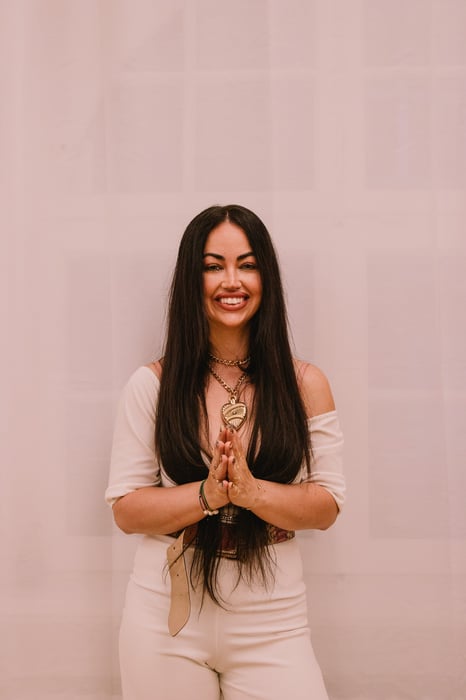
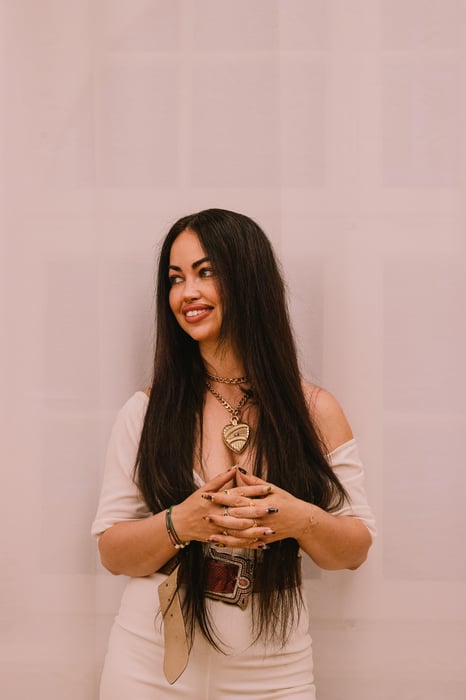
Michelle: That was really beautifully said!
Aura: Danke! [Thank you!, in German]
Michelle: You recently finished a fantastic tour in Germany. But if I am not mistaken, then this is your first time playing in Kiel, right?
Aura: Yes!
Michelle: That's so nice! Although the weather sadly isn't the nicest today -
Aura: Oh, I'm used to this weather because I'm from Scandinavia. I'm half from the Faro Islands, and I grew up in Denmark, and also on a tiny island in the middle of the ocean. So basically, I think this weather is kind of like when you are from this part of the world; you’re just used to it. And, you know, in Denmark, we have a saying, it's like, the weather doesn't matter, it all comes down to your outfit.
Michelle: Oh, yeah, we have the saying thing here.
Aura: Yeah? What is it?
Michelle: In German, we say “Es gibt kein schlechtes Wetter, es gibt nur schlechte Kleidung“.
Aura: Nur schlechte Kleidung! [only bad clothing]
Michelle: Exactly, that's what they say here. (both laughing)
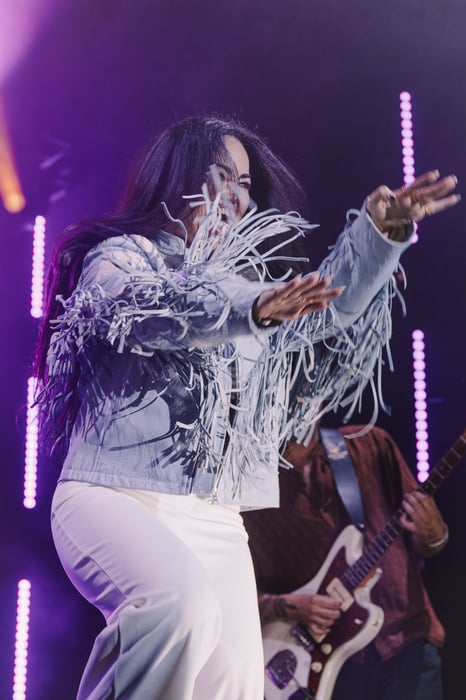
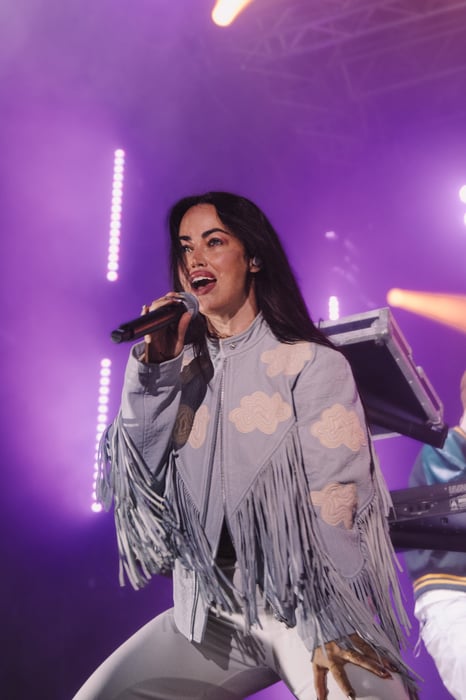
Michelle: I actually read about what you just said before [about growing up on an island], and when I read about your childhood, I also saw that you wrote your first song when you were just five years old. Can you tell us a bit about that?
Aura: Well, for me, music has always been - it's almost like a language, like learning to speak - because to me, it has always been about communicating emotions. So, I started very young. When I was growing up, I spent a lot of time on a boat, and I spent a lot of time on my own. We had this tiny, kind of a toy, piano and it would almost be like having a friend that I could consult and talk to and hang out with. Especially on those long days in the ocean, I would just kind of create these stories and these games on the piano and that's kind of how music really opened up its world to me.
Michelle: That's such a cool story! And then in 2009, you had your big international breakthrough with your single, “I Will Love You Monday (365)”. Since then, what would you say has changed the most in your life, in your career, and your perspective in general?
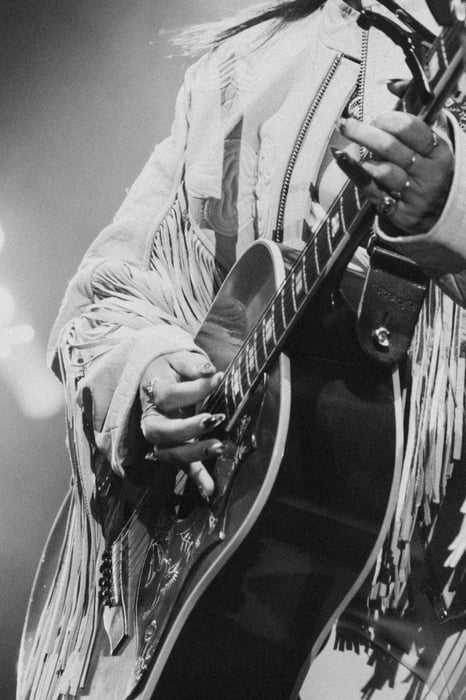
Aura: I think the whole world has changed a lot since I had my first moment with music that changed my life. I think right now, we're living in very uncertain times, and I think we're all trying to find out how we can how we can help each other and be in this world together, with everything that's going on. And even as an artist, I'm struggling with [thoughts] like, I'm not doing enough, am I doing enough? What can I do? Where should my focus be? - even with the songs that I want to write. I keep coming back to think [that] the most important thing today is that you bring out hope - and that you focus on that, sometimes, what we need is just that one person who can just hold us when we're down. And I think that that has kind of changed. I think we used to be more. We just felt more safe. And right now, it's like a lot of the things that were normal last year are just strange this year, and we don't know what to look forward to. So, I really try to hold on to the moment and to hold on to the people that I love, and to hold on to the people who look at me for inspiration or for hope, and who listen to my music. And I want music to be a soundtrack that they can kind of turn to for just a little bit of relief, because I think we all need that. I think there's a lot of anxiety, and I think we need to bring the anxiety to a level where we can then be with our families and our friends and dare to even talk to strangers and be in rooms where we feel that we have a space and where we can belong and create belonging with each other. So, it is a very different world since I started. I am very, very thankful that I'm able to do this after so many years. And I wouldn't have been able to do it if I hadn't had the people around me and the stubbornness I inherited from my mom. [laughs] I have a lot to be grateful for, being a woman in music and doing it for many, many years, that's not nothing.
Michelle: It's quite incredible! Staying with the topic of hope a little bit, you have a song called “Mirrorball of Hope” and on the cover, there is a mirrorball, and then there's you as a mermaid on top of it. Could you tell us a little bit about the symbolism behind that?
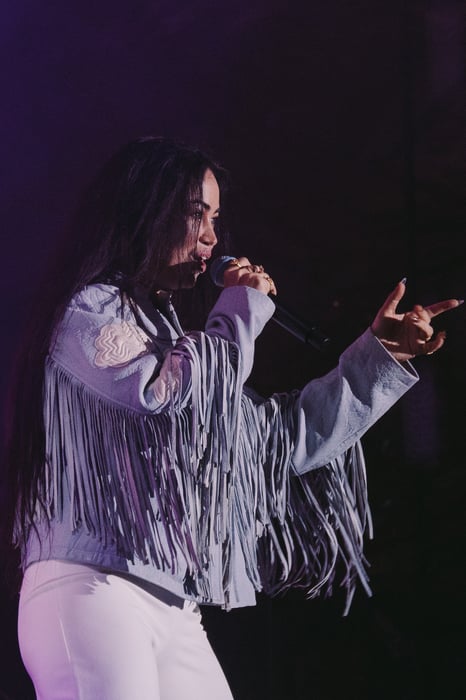
Aura: Yes. Well, I became a mom two years ago, and I had no plans on ever being part of Eurovision [song contest] because I don't believe that music is a competition. But somehow, giving life and looking at my daughter, I realized that she was just this, you know, my mirrorball of hope. She was just this mirror. Everything that I was giving her, she gave back to me 10,000 times. I just felt this, humbleness for all the children, and the fact that we have all been children once. I just really wanted to use that moment in time. And I thought, I had this song, and it just came, and I was like, whoa, I don't know, it just felt like a moment where I could be her mirrorball of hope and shine her light into the world. And I thought, I want to maybe turn into the little mermaid. And then I can represent Denmark because that's our national symbol, that's the story of the Little Mermaid. The power of a woman's voice, you know, she's just one woman, but she's the symbol of my country, sitting there with no legs, just the tail and just this strong, strong voice, and somehow she's so powerful. And I also like that image, and I thought it would be fun to look back on as a kind of moment in time and anchor. I will always remember that I did that because of her, and I love the song. I think it's such a powerful song.
Michelle: I would totally agree with that! I think it's truly a great song. Talking about great songs, in April, you released a new single, and I hope I'm pronouncing this correct because my Danish skills are very limited, but it's called “Venner for Livet”. So far, the majority of your songs have always been in English, now you're turning to Danish songs. Can fans expect more Danish songs from you?
Aura: That's a good question. I actually don't know. I'm kind of also following my heart and this song kind of wrote itself and it was so much fun for me to write in my own language because I've been working on writing English songs for as long as I can remember. It has to feel natural and not forced. I think that's the most important thing. I do have more kind of songs that are kind of, you know, becoming, but to me, I'm as much a passenger as the people that listen to my songs, because I'm also surprising myself, you know, I'm like, really? I'm doing this? I mean, some things are planned and some things I look into the future, but when it comes to the art and the creation and the process, I'm very intuitive.
Michelle: More broadly, would you say that language kind of changes the direction in which you're writing, or the direction in which you are telling people about your emotions or stories?
Aura: Well, yes and no. I do think that when you write in Danish, it's just that the words have a different weight and you have to be clever because we have a lot of words that mean the same thing. So, it's quite funny to play with the words because they can have so many meanings. And that's actually what I love about writing in Danish. But I think at the end of the day, English for me is just such a universal language and it transcends to so many people and I'm in love with the world and I want to be part of the world and I want to reach millions of people. So, it wouldn't make sense to me to just kind of focus on 5 million people, even though I love it. And I think it's fun. It has to, you know, it has to have a proper impact. It has to be worth my time.
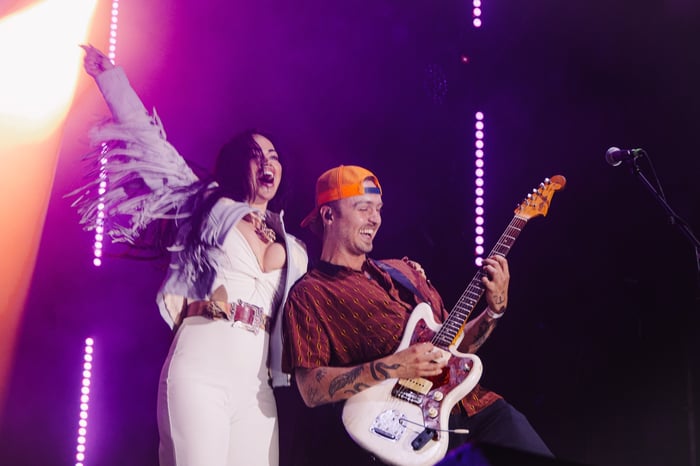
Michelle: Your concert today is only a few minutes away. Do you have any personal pre-show rituals or anything you like to do before show?
Aura: Yes, I like to call the band together and have moments with them that are really raw and I bring out kind of their “Urkraft”. I'm asking them to be fearless and to appreciate the fact that they actually get to stand on stage and do this thing that so many people dream about and, I mean, it is kind of a team sport. I need them to give as close to 100% as they can so I can give 110%. So, I always try to bring that out and I think that that's the most important thing. Sometimes it can be really hectic and there's so many things that have to be done before going on stage. But a moment of peace where we can just look each other in the eyes, that is crucial.
Michelle: That sounds really nice! We're coming to the end of our interview today, for our magazine, we have a playlist where we collect artist recommendations. Do you have any songs that you would recommend?
Aura: Well, at the moment, I'm listening to - oh, there's so many good songs, but I just saw Alanis Morissette’s set in concert. So, I'd go back in time and go back to listening to "Ironic" by Alanis Morissette. I think she's one of the best songwriters that ever lived.
Less than an hour after our conversation, Aura Dione lit up the stage at Kieler Woche - undeterred by the heavy rain, which she and her incredible band embraced with contagious energy. The set effortlessly blended newer tracks like “Where Does Love Go” with beloved fan favourites such as “Song For Sophie” or “I Will Love You Monday” A standout moment came when Aura jumped from the stage and performed part of her hit song “Geronimo” while making her way through the crowd. A powerful, joy-filled gesture that left fans beaming and created a memory that is sure to last.
LISTEN TO AURA DIONE'S FAVORITES HERE:
WANT TO SEE MORE OF AURA DIONE? HERE ARE ALL THE PHOTOS OF HER PERFORMANCE:
INTERVIEW BY
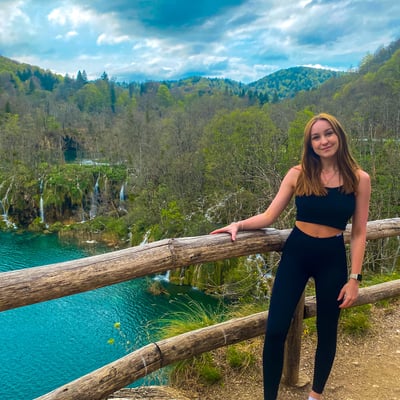
Michelle
I write about the stories and emotions that shape music, with a special focus on the artists who bring them to life on stage. My work often explores the cultural impact of music through the lens of live performances and pop culture. Highlighting the voices of female artists and their evolving place in the industry is especially important to me, and I love conducting interviews that uncover the artistry and personality behind the music.
PHOTOS BY
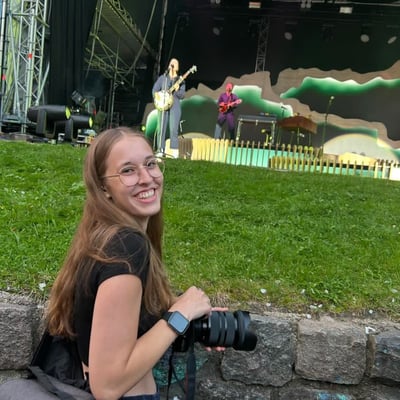
Jane
I'm a concert photographer from Hamburg Germany and I love capturing artists in their element und fans enjoying the moment!



